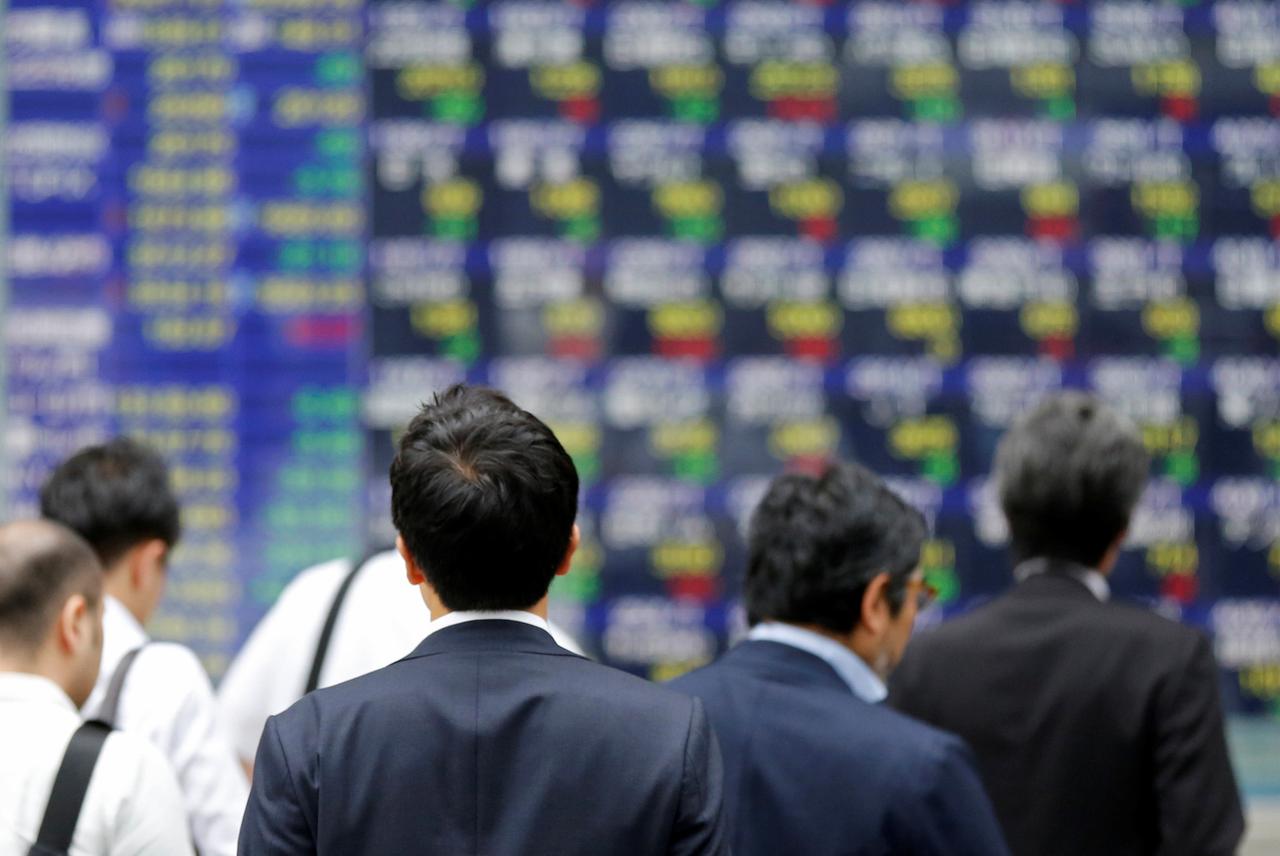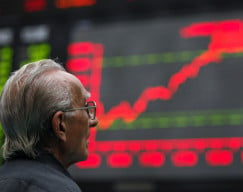
Central banks across Asia and Europe also cut borrowing costs and pumped funds into the system in a bid to cushion the economic impact as the breakneck spread of the virus all but shut down more countries. But they had limited success in calming panicky investors.
The volatility gauge for eurozone stocks, known as Europe's "fear index", surged to record highs as the main European stock markets plunged nearly 8% in brutal opening trade, with Wall Street bracing for similar moves later.
Fear still reigned. Europe introduced curbs on short-selling, while bond markets tried to juggle both the risk to vulnerable countries but also that a fiscal spending splurge might impact safe-haven debt.
"The central banks threw the kitchen sink at it yesterday evening yet here we are (with deep falls in stock markets)," said Societe Generale strategist Kit Juckes.
"There is a great sense that central banks are going to get to grips with the issues of getting money flowing ... But the human problem, the macro problem, there is nothing they can do about that."
With global travel grinding to a standstill, Europe's travel and leisure stocks index has halved in value in roughly three weeks. The drastic shock to demand delivered to airlines and travel companies may be replicated elsewhere.
MSCI's index of Asia-Pacific shares outside Japan tumbled 5.2% to lows not seen since early 2017, while the Nikkei fell 2.5% as the Bank of Japan's easing steps failed to reassure markets.
Chinese data underscored just how much economic damage the disease has already done to the world's second-largest economy, with official numbers showing the worst drops in activity on record. Industrial output plunged 13.5% and retail sales 20.5%.
In Asia, Shanghai blue chips fell 4.3% overnight even as China's central bank surprised with a fresh round of liquidity injections into the financial system. Hong Kong's Hang Seng index tumbled 4%.
Australia's S&P/ASX 200 plunged, finishing down 9.7% - its steepest fall since the 1987 crash.
"By any historical standard, the scale and scope of these actions was extraordinary," said Nathan Sheets, chief economist at PGIM Fixed Income, who helps manage $1.3 trillion in assets. "This is dramatic action and truly does represent a bazooka.
"Even so, markets were expecting extraordinary action, so it remains to be seen whether the announcement will meaningfully shift market sentiment."

1722586547-0/Untitled-design-(73)1722586547-0-165x106.webp)


1732326457-0/prime-(1)1732326457-0-165x106.webp)





1719053250-0/BeFunky-collage-(5)1719053250-0-270x192.webp)






COMMENTS
Comments are moderated and generally will be posted if they are on-topic and not abusive.
For more information, please see our Comments FAQ